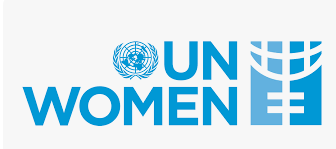New York (Web Desk/Agencies): One in three women around the world experience physical or sexual violence, often at the hands of an intimate partner. This widespread abuse is a severe violation of human rights that leaves lasting physical, emotional, and psychological scars, sometimes even leading to death, UN Women stated on Saturday.
According to UN Women, the United Nations agency dedicated to women’s empowerment, such violence not only takes a toll on the well-being of women but also hinders their ability to participate fully in society.
The effects ripple outward, impacting families, communities, and entire nations, with significant economic costs in areas such as healthcare, legal proceedings, and lost productivity.
The agency also noted that while 165 countries have enacted laws against domestic violence, only 104 have comprehensive measures in place to tackle this issue.
Interestingly, countries with robust domestic violence laws report significantly lower rates of intimate partner violence compared to those without such legislation—9.5% versus 16.1%, respectively.
Each year, the 16 Days of Activism against Gender-Based Violence campaign, spearheaded by UN Women, shines a light on the global scale of violence that women and girls face.
This annual event, which begins on November 25 (the International Day for the Elimination of Violence against Women) and concludes on December 10 (Human Rights Day), calls on governments, activists, and individuals to come together and push for lasting change.
In 2008, the UN Secretary-General launched the UNITE by 2030 campaign, which runs alongside the 16 Days of Activism. Every year, the campaign focuses on a particular theme, and this year’s focus is “UNITE! Invest to prevent violence against women and girls.”
The emphasis is on creating long-term solutions that address the root causes of gender-based violence, which continues to affect millions of women worldwide.
The statistics are staggering: nearly one in three women and girls will experience physical or sexual violence in their lifetime. In 2023, at least 51,100 women will fall victim to femicide—murders targeting women, with more than half of these killings carried out by intimate partners or family members. UN Women stated that femicides are the most extreme sign of the failure of systems meant to protect women and girls, adding that women are not safe even in their own homes.
Violence against women extends beyond the private sphere into the public realm, where politicians, human rights defenders, and journalists often become targets of both online and offline abuse.
In some cases, this violence leads to fatal consequences. The rise of gender-based violence in conflict zones is especially alarming.
In 2023, the United Nations reported a sharp increase of 50% in gender-based violence compared to the previous year, largely driven by ongoing conflicts.
The story of Ukrainian activist Lyudmila Huseynova highlights the horrifying reality of sexual violence in conflict. After enduring years of imprisonment and torture in a Russian prison, where she was subjected to brutal physical abuse, Huseynova recalls that, “In that place, you become a person without rights.”
Since her release in 2022, Huseynova has become a vocal advocate for survivors of conflict-related sexual violence, working with SEMA Ukraine to amplify the voices of those suffering from such violence and demand justice. She has vowed to continue her fight for these women, saying, “We will use every means to make their pain visible.”
UN Women also stresses the importance of individual action in the fight against gender-based violence. Whether by supporting local organizations, pushing for stronger laws, or offering personal support to women in our lives, everyone can make a difference. Argentine activist Iren Cari, founder of the Women’s Forum for Equal Opportunities, underscores the need to empower women in political spheres, advocating for increased funding to support women’s participation in policy-making and electoral processes.
The agency further urges governments to enact and enforce laws that ensure accountability for perpetrators of gender-based violence, particularly through the creation of National Action Plans.
In addition, UN Women calls for more investment in women’s rights organizations, which play a vital role in providing survivors with the resources they need for recovery and empowerment.
The 16 Days of Activism serve as a powerful reminder that every action, no matter how small, contributes to the ongoing fight to end gender-based violence.
UN Women concludes by calling for collective action, urging individuals, organizations, and governments to unite in the struggle for women’s safety, equality, and justice.


